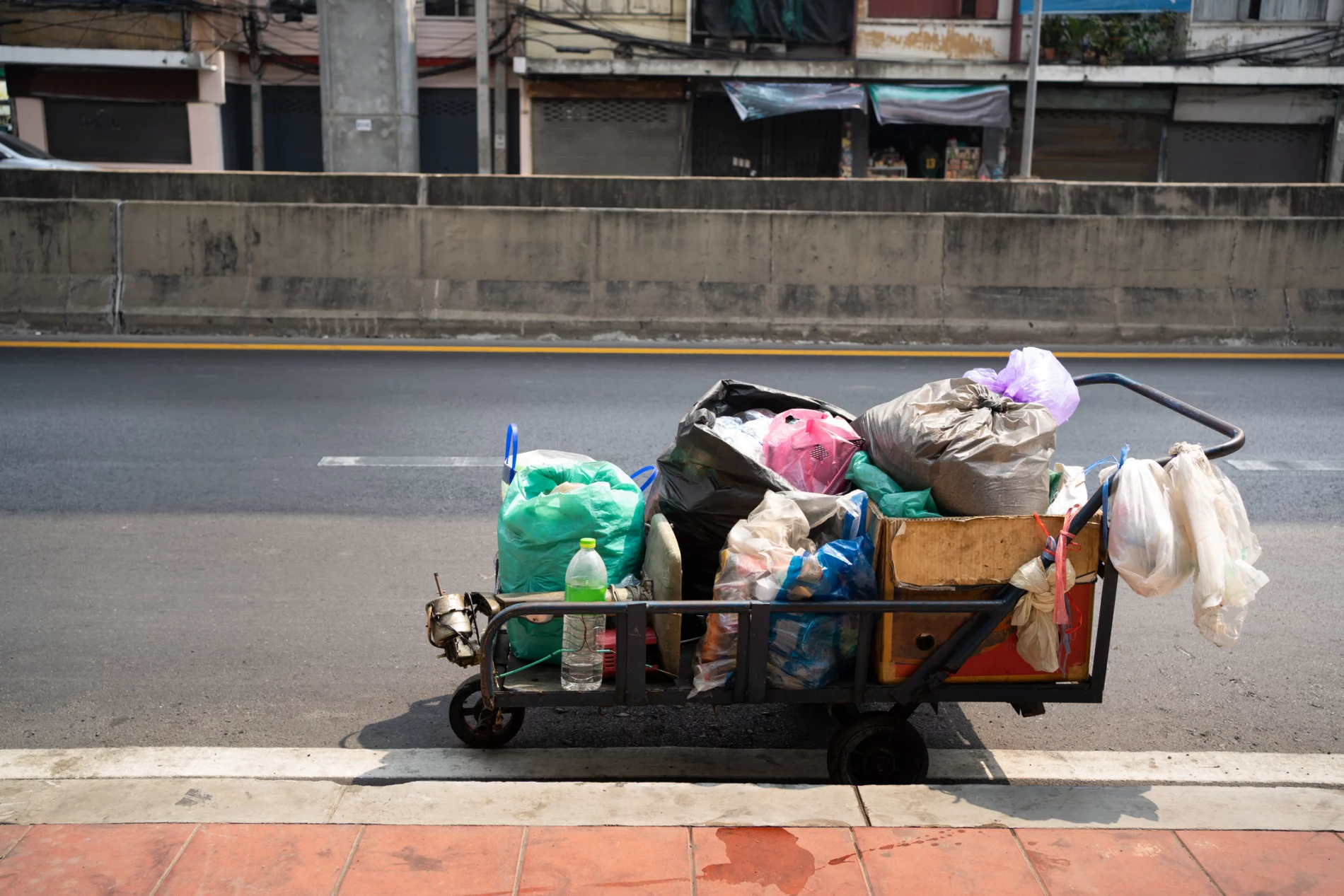Bangkok’s waste metabolism: barriers and opportunities for inclusive circularity

Abstract
Despite progress in policy and practice, there has been a lack of focus on the social implications of circular transitions in
developing cities in Asia. Specifically, how the informal sector which often forms the backbone of recycling efforts will be
integrated. Influencing behavior at the consumer level towards more sustainable practices is also under-explored.
Responding to this gap, this paper presents data from informal waste workers, households, and junkshops in two Bangkok districts which we analyze from material, social, and behavioral perspectives, drawing out implications for inclusive circularity. At the household level, we find a critical problem of organic waste as the most significant waste type thrown away as trash. The behavioral analysis uncovers a value-action gap between attitudes and practices around waste separation, while economic motivation and collective action emerge as important drivers of behavior. We provide several avenues for behavior change but also draw attention to the limits of individual action and market-based systems for recycling, arguing that policymakers have a leading role to play in piloting circular waste structures, regulating the industry, and creating an enabling environment for behavior change. Greater recognition and support for the informal sector is also essential for inclusive circularity.
To download the whole thesis, please click here












